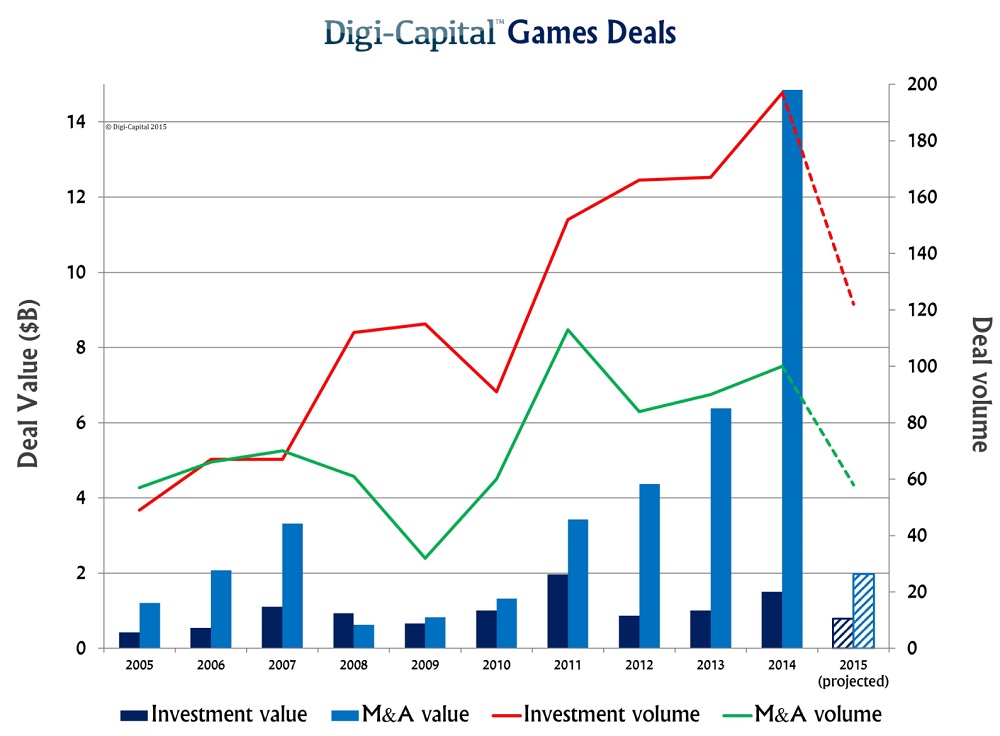It’s a buyers market in games. Game industry investments fell 48 percent in value, and game mergers and acquisitions fell 87 percent in the first half of 2015 compared to a year ago, according to a report from tech advisory firm Digi-Capital.
Overall, game deals are down 89 percent in the first half. Tim Merel, managing director of San Francisco-based Digi-Capital, said last year’s $24 billion in mergers and acquisitions were due to some mammoth deals such as Microsoft’s $2.5 billion acquisition of Minecraft maker Mojang. There were five mega-deals in 2014 that accounted for $8.1 billion in deals.

Unlock premium content and VIP community perks with GB M A X!
Join now to enjoy our free and premium membership perks.
![]()

![]()